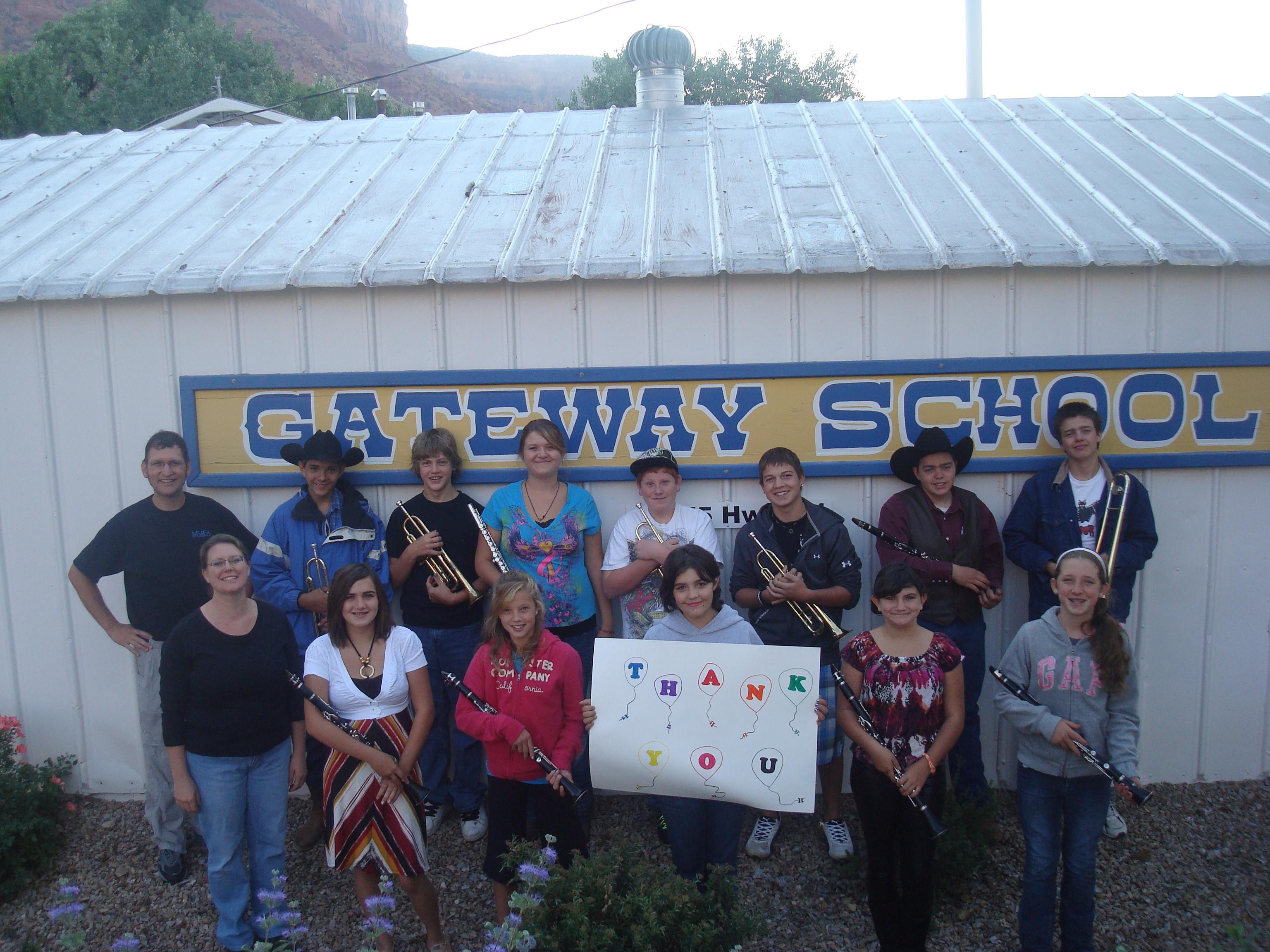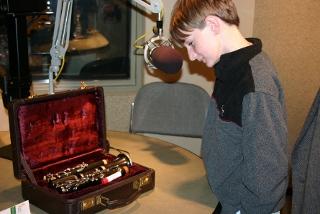

Four years ago, Ellington Jenkins received a clarinet from an instrument drive originally launched by Colorado Public Radio. Now he's 14 years old, plays in jazz and wind ensembles at school, hopes to study at the prestigious Berklee College of Music in Boston after graduating high school, and wants to become a professional musician someday.
"It was pretty important getting an instrument as good as the one I got from the drive," Jenkins says. "I'm more motivated to practice because it's easier to sound better on this clarinet."
But last year, the instrument drive went on hiatus as CPR transitioned management for the program. Now, a new music education non-profit, Bringing Music to Life, is organizing the drive for the first time.
Steve Blatt, Bringing Music to Life founder and executive director, used to be CPR's community programs director. He spoke with CPR about how the instrument drive moved from an experiment to an event that has its own non-profit organization.
CPR: Why did you decide to found a non-profit organization to manage the drive for the first time this year?
Steven Blatt: When CPR determined that the drive had become too big to manage, I decided to found Bringing Music to Life to produce and manage the drive, with CPR serving as my primary promotional partner. Knowing how much good had been achieved through the first four drives, I didn’t want to let it end. The response of all the businesses that had collaborated before as well as nearly all of the cultural partners was overwhelming. We’ve even added Fort Collins and Colorado Springs to the cities with dropoff locations.
CPR: What are your goals for this year's drive?
Steven Blatt: I’m hoping to collect between 600 and 700 band and orchestra instruments, repair as many as possible and then award them to deserving schools throughout Colorado in time for the beginning of the school year in the fall.
CPR: How did the instrument drive come about and how has it developed over the years?
Steven Blatt: The first drive in 2009 was really an experiment. We knew schools didn’t have the budgets to supply all the instruments that students needed, but we didn’t know if people would donate the instruments they or their children were no longer using. In a month we collected nearly 200 instruments. Most could be repaired, and we found schools for all of those. We took a year off to fine-tune the concept and then held the second drive in 2011. We increased the number of drop-off locations and invited the Colorado Institute of Musical Instrument Technology to serve as our repair partner. The response was amazing, with more than 1300 instruments donated. After that month-long drive, we decided to cut back to two weeks, and that was the length of the third and fourth drives. Over the course of four drives we distributed nearly 2,000 instruments to more than 100 schools throughout the state.
CPR: What other similar initiatives do you know of elsewhere and what makes this drive stand out from the rest?
Steven Blatt: Some of the earlier drives around the country collected instruments but didn’t repair them, which I felt was a burden for the schools. So beginning with our very first drive, we made certain that only instruments in excellent playable condition would be awarded. Other public radio stations have now conducted drives based on our model, including WQXR in New York.
CPR: Why is the Instrument Drive important?
Steven Blatt: When children learn to play an instrument, they learn much more than notes and scales. They develop skills for life: how to listen carefully, work with others, persevere until a goal is reached. They become more creative, compassionate and complete people. Plus, if they stick with it, they have a chance to hear and play some of the greatest works of art ever created. Over the years that we’ve been running the drive, we have many instances of kids who were not motivated in school finding meaning through their participation in music. A teacher in Pueblo wrote that several of the boys in her class were veering off towards gangs and drugs, but being in the band gave them something meaningful to be a part of. They wouldn’t miss a day of school because they didn’t want to miss band. Parents came to her full of gratitude and relief, asking what she had done. It wasn’t magic. It was music.








